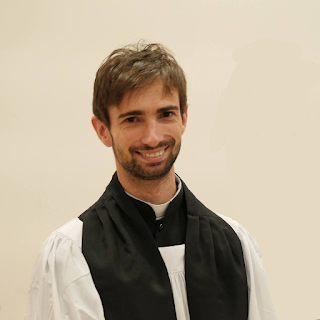Reading
John 10:22-30
22 Then came the Festival of Dedication at Jerusalem. It was winter, 23 and Jesus was in the temple courts walking in Solomon’s Colonnade. 24 The Jews who were there gathered around him, saying, “How long will you keep us in suspense? If you are the Messiah, tell us plainly.”
25 Jesus answered, “I did tell you, but you do not believe. The works I do in my Father’s name testify about me, 26 but you do not believe because you are not my sheep. 27 My sheep listen to my voice; I know them, and they follow me. 28 I give them eternal life, and they shall never perish; no one will snatch them out of my hand. 29 My Father, who has given them to me, is greater than all; no one can snatch them out of my Father’s hand. 30 I and the Father are one.”
Comment
"It was winter" (v. 22). There is something melancholy in this image portrayed by John in his Gospel. Jesus walks alone under the portico of the Temple, seeking shelter from the cold wind that came from the desert.
These are the days of Dedication festival (Heb. Hanukkah), roughly the beginning of December. There are about three months to go before the crucifixion.
The feast of Dedication lasts eight days and is celebrated to commemorate the new dedication of the altar and the purification of the temple by the leader Judas Maccabee in 164 BC, following the desecration made by the Syrian ruler Antiochus Epiphanes (Dn 8:13; 9:27), who in 170 BC conquered Jerusalem and placed a pagan altar in place of the altar of God.
Symbolically Jesus is the one who establishes the new temple and is the true leader of Israel. Yet, almost at the end of his earthly mission, misunderstanding about his person is still widespread among the Jews.
A group of these approaches and asks him "How long will you keep us in suspense?" (v. 24). They want him to openly affirm or deny whether he is the Christ or not, as did John the Baptist.
The Jews who question Jesus are not moved by a sincere desire to know who he is but expect his messianic profession to contest and condemn him.
Because of their incredulity, Jesus counts them among those who are not part of his flock - "you do not believe, because you are not my sheep" (26) - but he will address them with a further appeal to faith a little further on: "'Do not believe me unless I do the works of my Father. But if I do them, even though you do not believe me, believe the works, that you may know and understand that the Father is in me, and I in the Father'" (Jn 10:37-38).
The question of the Jews who are confused about Jesus can also cross our conscience. He invites us to look at his works, but we are surrounded by iniquity, injustice, and suffering. Yet the gospel announces a presence of life and salvation to us. Faith is capable of generating God in our soul and in the world, like a lotus flower that shines immaculately on a pond.
Believing in God's works means making Christ's presence in the world. Believing, recognizing the works of God, is not a merely intellectual activity, but implies the fruitful, generative power of faith, which finds confirmation in the works themselves that it is capable of producing.
Just, as well as the Father, has placed us in Christ's hands by making our salvation dependent on God's sovereign power, at the same time he has placed himself in our hands, to the extent that, born again in Christ, we share with him the responsibility for the whole flock.
The term used to proclaim the unity of Jesus with the Father is neutral and not masculine: he and the Father are not the same, but "one". Jesus is fully God, but a divine person distinct from the Father. The unity of Jesus with the Father is represented by the perfect synergy in word and action.
We too are called not to remain in doubt, but to enter the blessed flow of this synergy, finding in Christ the perfect cadence in the symphony of our life.
Prayer
Purify the temple of our heart, o Lord; so that we can devote ourselves to true worship in spirit and truth, magnifying your works and recognizing you as our shepherd. Amen.
- Rev. Dr. Luca Vona

